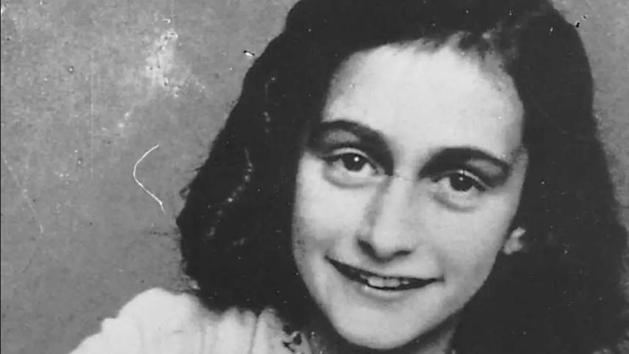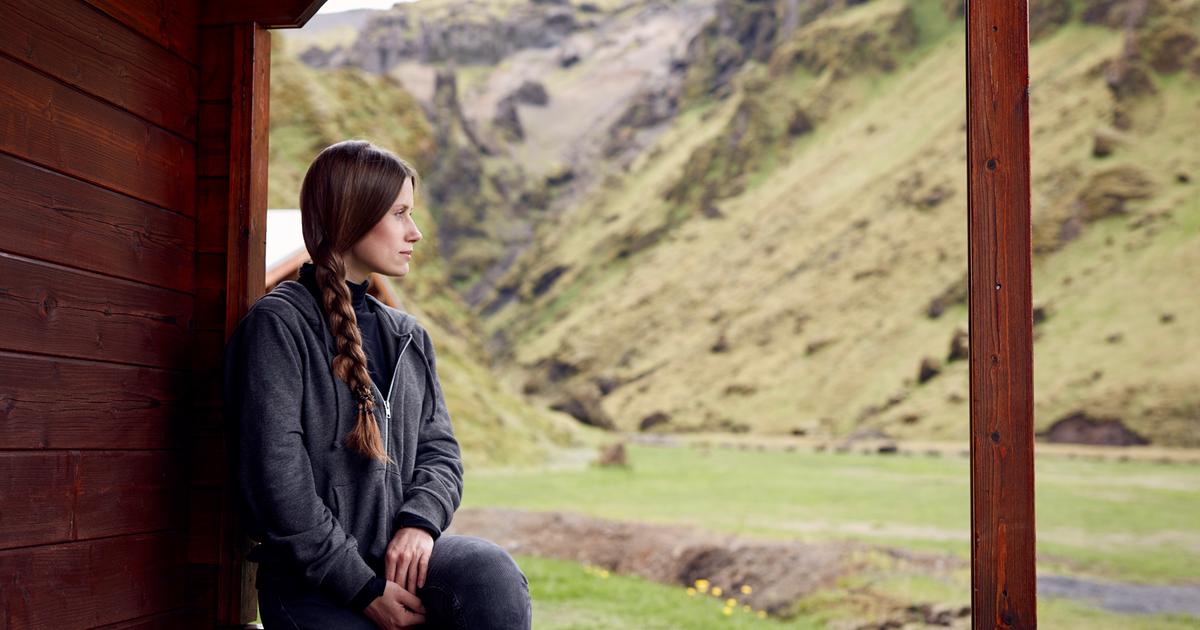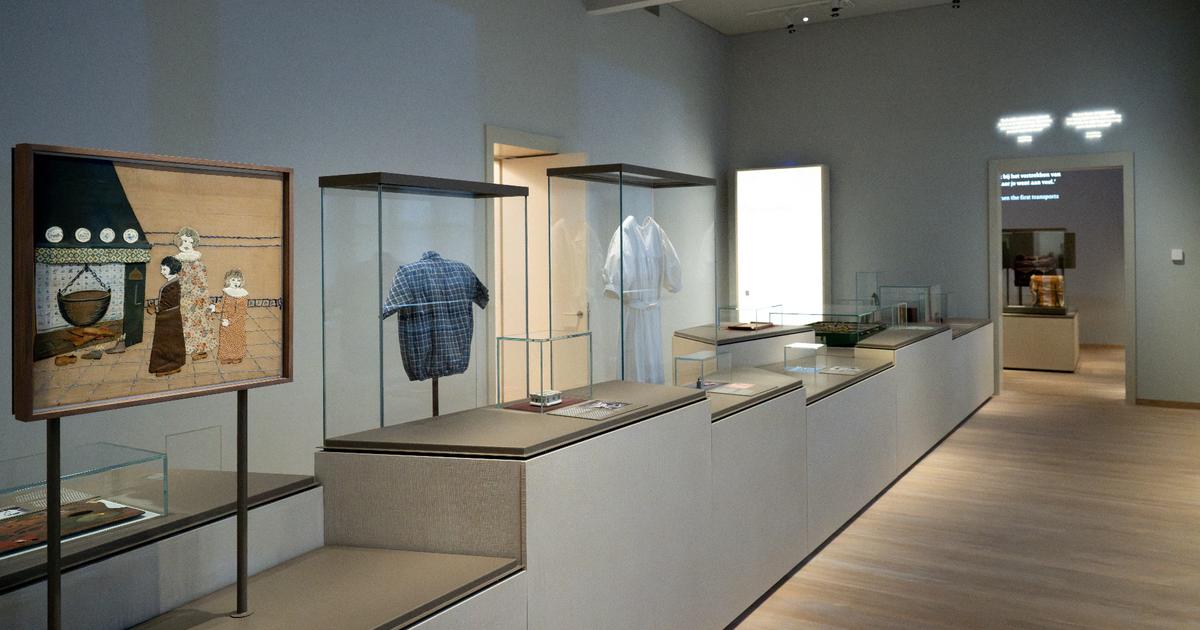Salomon Malka is a journalist and writer. He recently published Dieu, la République et Macron (Cerf, 2019).
It is a serious mistake, I confess shamefully, I had never read the Diary of Anne Frank . The testimony of Miep Gies, the woman who helped the Frank family during the war, yes. Films, plays, songs, visits to the Amsterdam Museum, hard to miss. But for mysterious reasons unknown to me, the Diary had remained unopened in my library. Fortunately, it is one of the rare virtues of Covid 19, it has allowed many readers to repair some glaring shortcomings. And it's a discovery. A text of great sensitivity where a teenage girl sleeps on paper, during the two years that last her withdrawal from the world, her moments of anguish, distress, joy, torment, revolt, laughter, emotion .
Anna Frank was 13 when she entered confinement.She was 13 when she entered confinement. She took with her a small notebook with an orange checkered fabric cover that her father gave her for her birthday, a few days before leaving for their common hiding place.
Hiding place? It is a building on a central street in Amsterdam, the Prisengracht . Above Otto Frank's warehouse, on the second floor, a cupboard door connects the Warehouse with what Anne Frank has always called "the Annex" (she even wanted to write a book that would bear this name, fearing it might make you think of a detective story). A library was stored in front of the hiding door. When the door was opened, the bookcase swiveled to give access to the hiding place. It was ingenious, starting from the idea that you had to hide behind the most conspicuous and obvious. In the hideout, lived Mr. and Mrs. Frank, Anne and his older sister Margot, Hermann Van Dean, his wife and son Peter. Seven illegals, later joined by Dr. Dussel, a family-friendly dentist ("When there is seven, there are eight").
Anne Frank's diary begins the day after her birthday. She tells the scenes of everyday life in her high school, jealousies, rivalries, chicanery, love affairs between classmates. Parade the assessments on the boys of the school. This one is an admirer, the other a pest, the third a boring one. She gives herself up without make-up, and even with greedy joy, while wondering who could be interested in the secrets of a thirteen-year-old schoolgirl. In fact, she doesn't care. She is endowed with a solid character and has a furious desire to write, to relate everything that goes through her head and to share it with a fictitious friend to whom she addresses: "Paper has more patience than people."
Total silence during the day.Now in the hiding place, she describes the daily actions and gestures, has fun drawing portraits of all the protagonists and recounts the moods of each other. Total silence during the day. Life resumes as soon as the last employee has left. Relays, early in the morning, in the bathroom before the employees arrive at the workshop. Or the use of a bucket in turn, each in the corner he has chosen.
The radio is tuned to London at low noise. Life gets organized, but the little family does nothing but try to speed up the progress of the days - readings, studies, radio, language learning, French, Latin, shorthand, Greek and Roman mythology ... - and d '' wait until the containment finally stops. From time to time, moments of anxiety, as when Anne became very shortsighted and we decided to have her accompanied by Miep Gies at the eye doctor. Mixture of panic and joy, before the father forces them to give up, because he has just heard on the radio that the English have landed in Sicily, and that he judges it preferable to abandon the project.
Anne Frank's diary looks like an initiatory journey.It evokes the post-war dreams of residents of the Annex, new clothes and new shoes. She recounts her difficult relationships with her mother, the incessant bickering, her need for love, her angry outbursts, her feeling of being misunderstood, her desire to free herself from parental supervision. She plagues, and does not imagine that one day things could change and the world will return to normal. She hears herself shout: "Go out, breathe and laugh!" She takes refuge in her journal, composes an ode to her fountain pen, a gift from her grandmother when she was nine years old, a precious object in her eyes and which suddenly disappeared without a trace.
As time goes by, she regrets the flirtatious little girl who amused the girlfriends, the teachers, the parents. And her diary resembles an initiatory journey, that of "a funny girl", as she says of herself, "who lives in a funny era and in funny conditions" . There is also, jumbled up in this newspaper, the delight in the beauty of the world glimpsed by skylights, the discovery of sensuality, the pain of not having a room of one's own, of sharing it with someone who snores and having to take refuge in the attic to be alone, the pain also of being examined by a doctor who asks you to say "Ah" on the phone, the multiplication of thefts and burglaries in the Warehouse, his first kiss, his desire to become a journalist, his joy at having this desire, this talent, this shelter: writing… His dream also of going to spend a year in Paris and London to learn the language and study the history of Art.
Anne Frank imagines that in October perhaps, if all goes well, she will be able to return to sit on the class benches.June 6, 1944. She notes the news of the Allied landing in Normandy, the hope that is reborn, Churchill which we learn that at seventy years, he had intended to launch with the troops and gave up on it only under pressure from Eisenhower. She reports on General de Gaulle's speech, heard on BBC radio since his confinement. She imagines that in October perhaps, if all goes well, she will be able to return to sit on the class benches. And she observes: "Our thoughts are as little varied as our life, they run endlessly like a merry-go-round, from the Jews to food and from food to politics. By the way about the Jews, yesterday, as if it were one of the wonders of the world, I saw two through the curtain, it made a funny impression on me, that of having betrayed them and to spy on their misfortune in secret. ”
At fifteen, writing improves, judgment is safer. She considers that women do not have the place they deserve in society, that things should change in the future. She keeps her convictions to the end, continues to believe in "the innate goodness of human nature".
Anne Frank will be deported to Bergen-Belsen camp and die of typhus before the liberation of the camp by the allies.Tuesday August 1, 1944, Anne Frank writes the last letter of her diary. As is often the case, it concerns the way she looks at herself, her character, her contradictions.
Three days later, a German man in Gestapo uniform and three Dutch men in the German police department entered the hiding place and arrested the eight illegal immigrants. Probably following a denunciation (which seventy-five after, is still not elucidated). Miep Gies, who provided constant support to the Frank family during these two years, was not present.
Anne Frank was deported, with her sister Margot, to the Bergen-Belsen concentration camp and died of typhus, shortly before the liberation of the camp by the allies.
Anne Frank House in Amsterdam, currently closed to the public due to the coronavirus, is normally visited by a majority of young people and schoolchildren around the world.
As for Anne Frank's Diary , found thanks to Miep Gies and published by the will of Otto Frank, it will be and remains today one of the most read books in the world, translated into more than 70 languages.




/cloudfront-eu-central-1.images.arcpublishing.com/prisa/7C3LUM4R75AU5MMLTKFXM4GDUA.jpg)
/cloudfront-eu-central-1.images.arcpublishing.com/prisa/4CMOJWD7RNHHPJD5UVCNRMMLYM.jpg)



/cloudfront-eu-central-1.images.arcpublishing.com/prisa/7XPUEB6JG5CMJNDF5BFAXW235I.jpg)





